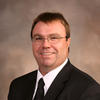 On April 2, 2015, the North Dakota House of Representatives spent roughly 90 minutes debating whether the state should add “sexual orientation” to existing state law that prohibits discrimination on the basis of “race, color, religion, sex, national origin, age, physical or mental disability or status with respect to marriage or public assistance.” The measure, known as H.B. 2279, ultimately failed by a vote of 35-56.
On April 2, 2015, the North Dakota House of Representatives spent roughly 90 minutes debating whether the state should add “sexual orientation” to existing state law that prohibits discrimination on the basis of “race, color, religion, sex, national origin, age, physical or mental disability or status with respect to marriage or public assistance.” The measure, known as H.B. 2279, ultimately failed by a vote of 35-56.
One of the 56 representatives voting “No” was Randy Boehning, a 52-year-old Republican legislator from Fargo. Not long after the vote, a 21-year-old Bismarck resident named Dustin Smith approached a local news outlet called The Forum and said that he had received sexually explicit messages from Boehning on the gay dating app Grindr. Smith told The Forum that Boehning’s username was “Top Man!,” and that he had sent him a series of sexual suggestive messages. He also said that three weeks before the vote on H.B. 2279, Boehning had sent him an unsolicited nude photo of his genitals.
In an interview with the Washington Post, Smith said that he was troubled by the apparent hypocrisy of Boehning’s vote against the anti-discrimination bill.
I just felt like this story had to get out. A [representative] had voted against a bill for the LGBT community and here he was talking to me on Grindr.
Boehning initially refused to confirm or deny the report, but on Saturday, April 25, conceded that he was “Top Man!” on Grindr and that he is attracted to both men and women. He said that he had been warned before the vote that he would be “outed” if he voted no, but felt that his constituents wanted him to oppose the bill. He also expressed relief that his sexuality was finally out in the open.
Regardless of the appropriateness of Boehning being “outed” in this fashion, the story underscores the rapid and ongoing implosion of our personal zones of privacy. Social media is particularly perilous for public figures, who are at greater risk of being recognized, and who often have public persona or policy positions that are at odds with their behavior on social media. There is no intrinsic problem with public figures using social media; they just need to remember that the chances that conduct on social media will remain “private” are vanishingly small.